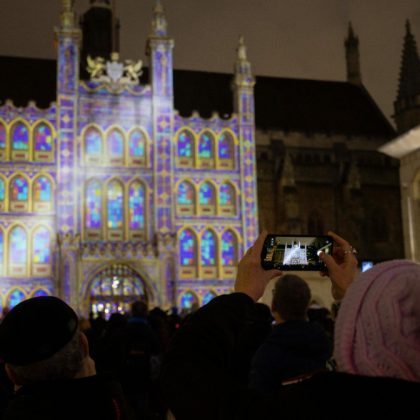Customer trust is at an all-time low, yet it is one of the most important things a brand can possess. Customers are becoming more conscientious, expecting transparency and authenticity from brands. So how can destinations maintain their authenticity? We highlight some innovative examples below and in our 2019 Insights Report (to receive our full Insights Report, please email hannah.channing@coverdalebarclay.com).
Social commentator and actor, Will Rogers, said: “It takes a lifetime to build a good reputation, but you can lose it in a minute.” For retailers and destinations, trust is business critical, and must be treated as a very fragile commodity.
Technology, for example, has significantly improved quality of life, with far-reaching benefits of the ‘Information Revolution’ to rival the ‘Industrial Revolution’. However, like Star Wars, it has a dark side. Questionable data management practices by major players, most notably by social media companies, generate distrust amongst consumers.
Tough choice: on the one hand, a personalised experience which is specific to the individual should be welcomed; on the other, a loss of control as your data is sold on and personal profiles are misused is not. During the first half of 2018, some 3.2 billion consumer files were compromised worldwide, up 72 per cent on the previous year. No wonder customer trust is struggling.
However, compare and contrast: PwC’s 2018 Global Consumer Insights Survey sought to understand consumer behaviour by quizzing 22,000 online shoppers in 27 territories around the globe. Despite well-known reservations about privacy, social networks are still the number one source of inspiration for purchases. In effect, customers put much trust in the collective opinions and experiences of fellow shoppers, despite never meeting them.
Importantly, ‘Likes’ and recommendations come from a desire to share a great experience with thousands of strangers online. To capture these endorsements, the challenge for brands and retailers is to become known for authenticity and trustworthiness. That’s why the PwC report heralds a third of respondents who ranked ‘trust in brand’ as their second highest reason to shop with a particular retailer.
In our 2019 Insights Report, we highlight several concept stores around the world that are leading the field. These combine culture with the business of selling, offering a curated selection of products that reflect a certain lifestyle or theme. To counter the growth of online shopping, concept stores exemplify the potential that experiential events offer, Instagram-able shop fits, attractions to entice visitors off their phones and by giving customers multiple reasons to return often.
Story, for instance, is a New York store that is always changing. It is more like a magazine or a gallery than a shop, offering a curated mix of wares and constantly changing visual themes that are revisualised every month or two. The aim is a series of pop-up stores that keep customers coming back for more. Founder Rachel Shechtman has said: “My rule: 70% of an experience should be what consumers know and 30% should be surprise-and-delight.”
Customer loyalty is achieved through building trust which is a very fragile commodity, and it presents a challenging, but achievable, balancing act for brands and retail destinations.
To receive our full Insights Report, please email hannah.channing@coverdalebarclay.com

![MUSE-[42] MUSE-[42]](https://www.coverdalebarclay.com/wp-content/uploads/elementor/thumbs/MUSE-42-rir90g6pitpq6ez7lsq3x5ovdemnamrnvlp3veuezs.jpeg)

